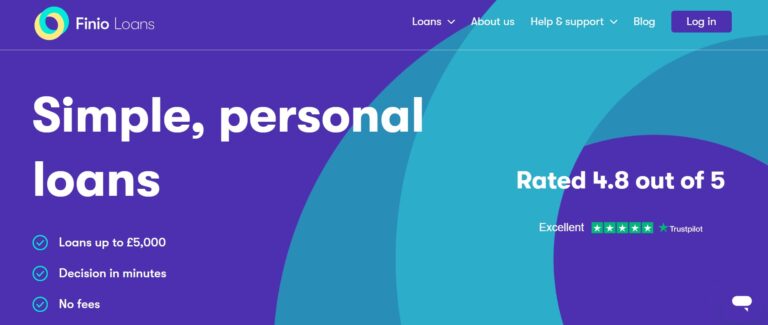Startup Business Funding With Bad Credit – How To Get Loan Approved?
Startup Business Funding With Bad Credit: How To Get A Business Loan In UK With Poor Credit?
Starting a business is challenging enough without the added pressure of having a poor credit score. In the UK, many entrepreneurs face the hurdle of securing funding when they have bad credit. Traditional lenders often view poor credit as a red flag, making it difficult for startups to get the financial support they need.
However, having bad credit doesn’t mean the end of your entrepreneurial dreams. In this guide, I’ll walk you through alternative funding options and strategies to help you secure a business loan in the UK, even with poor credit.
Understanding the Impact of Bad Credit on Business Loans
What is Considered Bad Credit?
Before diving into funding options, it’s important to understand what qualifies as bad credit. In the UK, credit scores are typically assessed by agencies like Experian, Equifax, and TransUnion. A credit score below 580 is generally considered poor, which can severely limit your access to traditional loans.
Lenders use these scores to gauge your creditworthiness, and a low score suggests a higher risk of default. This can result in higher interest rates or outright loan rejection, making it crucial to know where you stand before applying for a loan.

Why Lenders Are Hesitant to Approve Loans with Poor Credit
Lenders are in the business of minimizing risk, and a bad credit history signals that you may have struggled to manage debt in the past. Whether it’s due to missed payments, defaults, or bankruptcy, these marks on your credit report can raise red flags.
Lenders worry that history might repeat itself, making them hesitant to approve loans for those with poor credit. It’s important to understand these concerns so you can better address them when seeking funding.
Funding Options for Startups with Bad Credit
Alternative Lenders
One of the most viable options for securing a business loan with bad credit is to explore alternative lenders. Unlike traditional banks, alternative lenders often have more flexible criteria and are willing to work with businesses that don’t have perfect credit.
Companies like Funding Circle, Iwoca, and Fleximize specialize in providing loans to startups with poor credit in the UK. While interest rates may be higher, these lenders offer the opportunity to access much-needed capital when traditional avenues are closed.
Government Grants and Programs
The UK government offers various grants and funding programs designed to support startups, many of which do not require a perfect credit score. For example, the Start Up Loans scheme provides personal loans for business purposes, which can be a lifeline for entrepreneurs with poor credit.
Additionally, local enterprise partnerships (LEPs) and regional growth funds may offer grants or low-interest loans. These options are worth exploring, as they often come with additional support and resources to help your business succeed.

Crowdfunding and Peer-to-Peer Lending
Crowdfunding has become an increasingly popular way to raise funds without relying on traditional credit-based loans. Platforms like Kickstarter, Crowdcube, and Seedrs allow you to pitch your business idea to a broad audience who may be willing to invest small amounts in exchange for rewards or equity.
Peer-to-peer (P2P) lending is another alternative, where you can borrow money directly from individual investors through platforms like RateSetter or Funding Circle. These options can provide the capital you need without the strict credit requirements of traditional loans.
Business Credit Cards and Microloans
If you need smaller amounts of funding to get started, business credit cards or microloans might be suitable options. Some business credit cards are designed for those with less-than-perfect credit and can help you manage initial expenses.
Similarly, microloans—small loans offered by non-profit organizations or community lenders—can provide the necessary funds to cover early-stage costs. While these options might not offer large sums, they can be a stepping stone to larger funding opportunities as your business grows.
Strategies to Improve Your Chances of Securing a Loan
Build a Strong Business Plan
One of the most effective ways to overcome the hurdle of bad credit is to present a compelling business plan. Lenders want to see that your business has a solid foundation and a clear path to profitability.
A detailed business plan that outlines your market analysis, revenue projections, and growth strategy can help reassure lenders that your venture is a worthwhile investment, even if your credit isn’t perfect.
Offer Collateral or a Personal Guarantee
Another strategy to improve your chances of securing a loan is to offer collateral or a personal guarantee. Collateral could be in the form of property, equipment, or other valuable assets that the lender can seize if you fail to repay the loan.
A personal guarantee, on the other hand, means that you personally commit to repaying the loan, even if your business cannot. While these options carry risks, they can make you a more attractive borrower in the eyes of the lender.
Improve Your Credit Score Over Time
While it may not be an immediate solution, working on improving your credit score can open up better funding options in the future. Simple steps like paying bills on time, reducing outstanding debt, and regularly monitoring your credit report for errors can gradually improve your score. As your credit score improves, you’ll find it easier to qualify for loans with better terms and lower interest rates, making it a worthwhile long-term goal.
Case Studies of UK Startups That Secured Funding with Bad Credit
To inspire confidence, it’s helpful to look at real-life examples of UK startups that successfully secured funding despite having bad credit. For instance, a small retail business in Manchester managed to secure a microloan from a community lender after being turned down by several banks.
Another tech startup in London used crowdfunding to raise the initial capital needed, bypassing traditional lenders entirely. These stories highlight that with determination and the right approach, it’s possible to overcome credit challenges and get the funding your startup needs.

Conclusion
Securing startup funding with bad credit can be challenging, but it’s far from impossible. By exploring alternative lenders, taking advantage of government grants, and considering creative options like crowdfunding, you can find the financial support you need to get your business off the ground.
Remember, building a strong business plan and improving your credit score over time are key strategies that can enhance your chances of success. Don’t let a poor credit history stand in the way of your entrepreneurial ambitions—there are paths to funding that can help you achieve your business goals.







